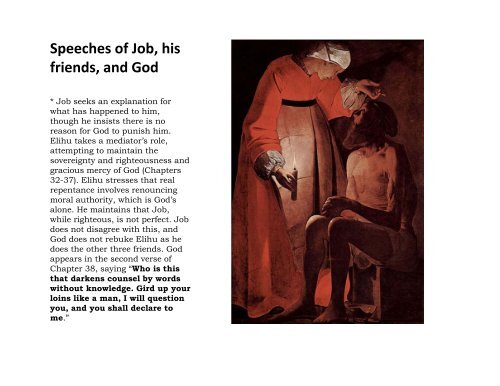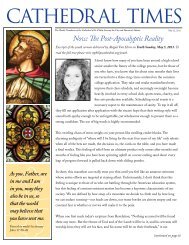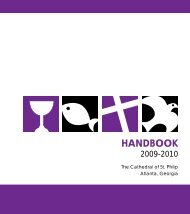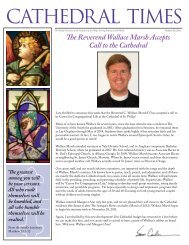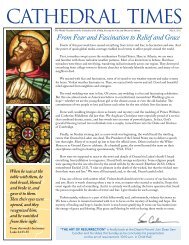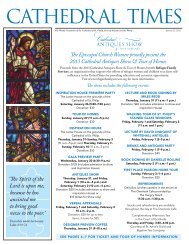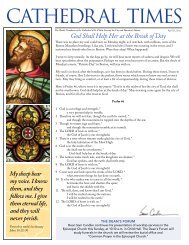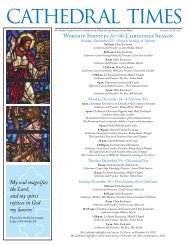Job, Jung and Theodicy - The Cathedral of St. Philip
Job, Jung and Theodicy - The Cathedral of St. Philip
Job, Jung and Theodicy - The Cathedral of St. Philip
Create successful ePaper yourself
Turn your PDF publications into a flip-book with our unique Google optimized e-Paper software.
Speeches <strong>of</strong> <strong>Job</strong>, his<br />
friends, <strong>and</strong> God<br />
* <strong>Job</strong> seeks an explanation for<br />
what has happened to him,<br />
though he insists there is no<br />
reason for God to punish him.<br />
Elihu takes a mediator’s role,<br />
attempting to maintain the<br />
sovereignty <strong>and</strong> righteousness <strong>and</strong><br />
gracious mercy <strong>of</strong> God (Chapters<br />
32-37). Elihu stresses that real<br />
repentance involves renouncing<br />
moral authority, which is God’s<br />
alone. He maintains that <strong>Job</strong>,<br />
while righteous, is not perfect. <strong>Job</strong><br />
does not disagree with this, <strong>and</strong><br />
God does not rebuke Elihu as he<br />
does the other three friends. God<br />
appears in the second verse <strong>of</strong><br />
Chapter 38, saying “Who is this<br />
that darkens counsel by words<br />
without knowledge. Gird up your<br />
loins like a man, I will question<br />
you, <strong>and</strong> you shall declare to<br />
me.”


